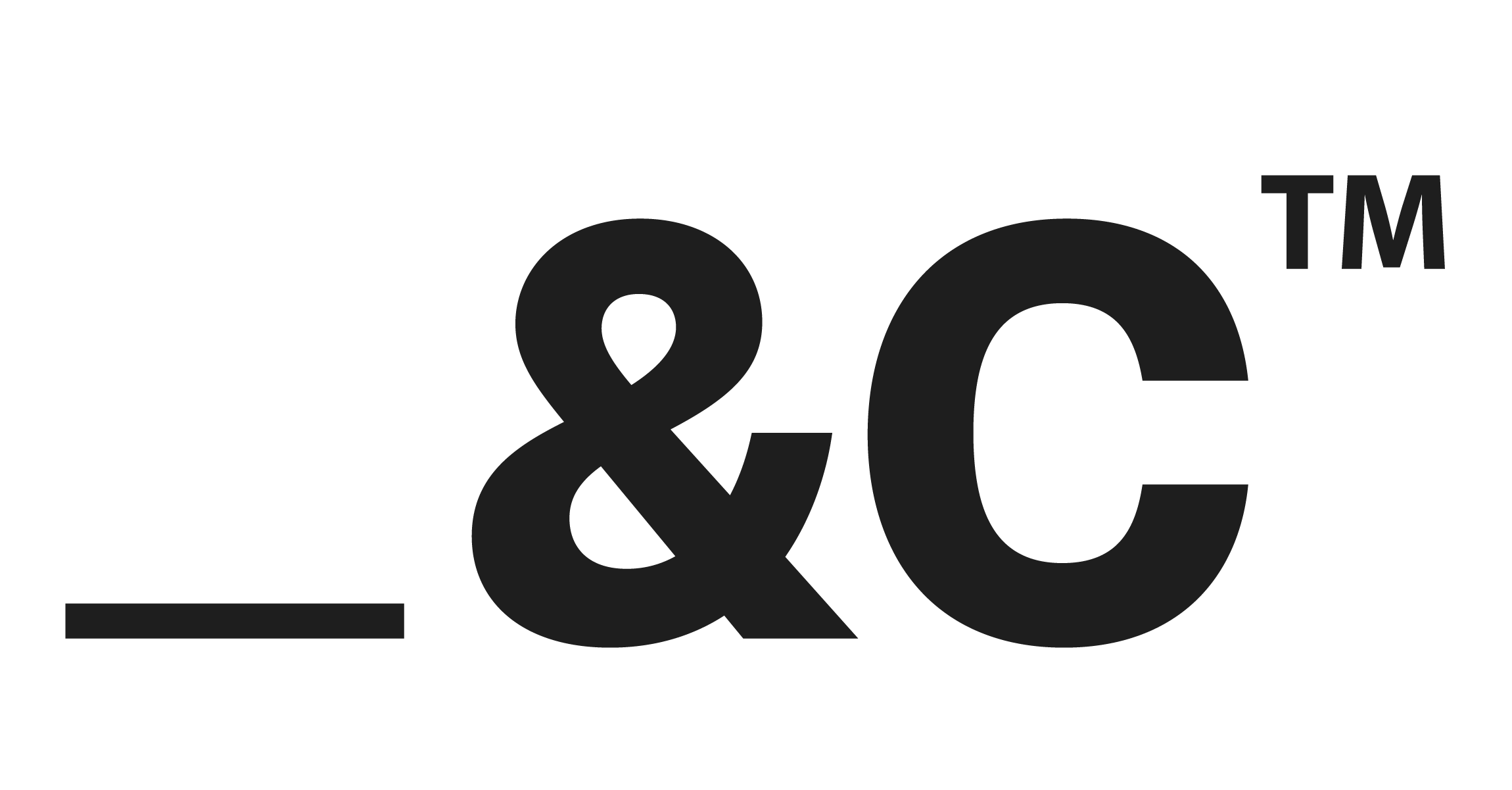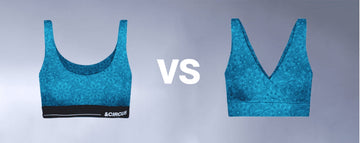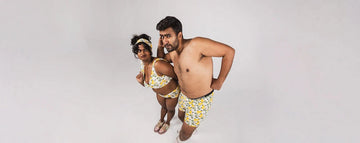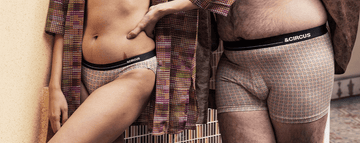Quick Listen:
Pregnancy reshapes a woman's world her body, her choices, her perspective. Every decision, from diet to skincare, becomes a deliberate act of care. So why settle for anything less when it comes to underwear? The maternity wear market, valued at USD 21.2 billion in 2024 and projected to reach USD 32.3 billion by 2034 with a CAGR of 4.3%, is witnessing a surge in demand for hypoallergenic fabrics that deliver comfort, safety, and sustainability. For brands like Tailor and Circus, this isn't a passing fad it's a commitment to redefining maternity innerwear for health-conscious expectant mothers.
Once overlooked, maternity underwear has emerged as a vital component of maternal well-being. The global maternity innerwear market, valued at USD 8.26 billion in 2025, is expected to grow to USD 15.25 billion by 2035 at a CAGR of 6.4%. Similarly, the maternity underwear segment, worth USD 3.5 billion in 2023, is forecasted to reach USD 5.6 billion by 2032 with a CAGR of 5.2%. These numbers reflect a clear shift: pregnant women want more than elastic waistbands they seek garments that nurture their bodies, align with their values, and respect the planet.
Conscious Consumerism Fuels Fabric Innovation
Step into a maternity boutique today, and you'll notice a transformation. Organic cotton, bamboo, and plant-based fibers have moved from specialty shelves to center stage. This shift is driven by heightened skin sensitivity during pregnancy and a growing awareness of what's safe for the body. Expectant mothers are prioritizing hypoallergenic fabrics, spurred by a broader cultural embrace of body positivity and self-care. Industry data underscores this trend, with increasing demand for eco-friendly, skin-safe materials fueled by a focus on maternal health and comfort.
These fabrics are more than just comfortable they're purposeful. Organic cotton, certified under standards like GOTS, avoids harmful chemicals that could trigger skin irritation. Bamboo, naturally antimicrobial, ensures breathability and freshness. Plant-based fibers, often processed with sustainable dyes, resonate with eco-conscious consumers. The maternity innerwear sector, projected to reach USD 13.91 billion by 2030 at a CAGR of 9.64%, is seeing brands adopt sustainable sourcing, eco-friendly dyes, and recyclable packaging to meet these expectations. This approach balances performance, aesthetics, and ethical responsibility.
Tailor and Circus, an Indian brand championing inclusive and sustainable fashion, is at the forefront of this movement. Their maternity underwear, crafted from organic cotton and bamboo, is designed to support a growing belly while maintaining style and safety. Customer feedback highlights the impact: expectant mothers have praised the comfort of these materials, noting their soothing effect on sensitive skin, illustrating the real-world benefits of hypoallergenic materials.
Real-World Success: Stories from the Market
The value of hypoallergenic fabrics shines through in customer experiences. Tailor and Circus has earned praise for its maternity underwear, with users lauding the blend of softness and durability. Globally, brands are following suit, introducing lines with organic cotton and bamboo to cater to health-conscious consumers. The pregnant women underwear market, valued at USD 2.5 billion in 2023 and expected to reach USD 4.1 billion by 2032 at a CAGR of 5.5%, reflects this growing preference for specialized, skin-safe products.
Online reviews paint a vivid picture. Shoppers on e-commerce platforms frequently cite relief from irritation and boosted confidence when using hypoallergenic maternity underwear. One reviewer noted that certain products feel exceptionally comfortable, underscoring the broader reality: expectant mothers are investing in their comfort and well-being, choosing products that support their physical and emotional journey.
The numbers back this up. Rising disposable incomes, a booming e-commerce sector, and innovative designs are driving demand for specialized maternity apparel. Advances in textile technology have also made hypoallergenic fabrics more durable and visually appealing, further accelerating market growth. For brands, the message is clear: prioritizing maternal health and comfort is not just a trend it's a market imperative.
Navigating the Challenges of Hypoallergenic Fabrics
The path to hypoallergenic maternity underwear isn't without hurdles. Sourcing high-quality, certified materials like organic cotton is complex, as reliable suppliers are often limited. Bamboo, while eco-friendly, requires meticulous processing to preserve its sustainable qualities. These supply chain challenges increase production costs, creating a dilemma for brands striving to keep prices accessible. The maternity innerwear industry, valued at USD 7.41 billion in 2022 and projected to grow at a CAGR of 7.2% through 2030, is grappling with this balance between quality and affordability.
Regulatory compliance adds further complexity. Certifications like OEKO-TEX Standard 100, which guarantees textiles are free of harmful substances, are essential for hypoallergenic claims. Meeting these standards demands rigorous testing and transparency, which can strain smaller brand's resources. For Tailor and Circus, adhering to these certifications is both a badge of honor and an ongoing operational challenge.
Cost is another sticking point. Hypoallergenic fabrics often carry a premium, which can deter budget-conscious shoppers. Brands must decide whether to absorb these costs, risking slimmer margins, or pass them on, potentially losing market share. It's a delicate balance, but the payoff loyalty from health-focused consumers makes the effort worthwhile.
Seizing Opportunities in a Dynamic Market
Despite the challenges, the opportunities are immense. Hypoallergenic fabrics provide a powerful way to stand out in a competitive market. For Tailor and Circus, emphasizing skin-safe, sustainable materials differentiates them from mass-market rivals, appealing to expectant mothers who value wellness. The North America nursing underwear market highlights this trend, noting that features like moisture-wicking and antimicrobial fabrics are enhancing postpartum care and boosting demand.
The health benefits are significant. Hypoallergenic underwear minimizes skin irritation, a frequent issue during pregnancy, and enhances overall comfort, supporting mental well-being. For nursing mothers, these fabrics offer ergonomic designs that adapt to changing body shapes and facilitate breastfeeding. The result is a more positive experience, fostering brand loyalty and repeat purchases.
The market is primed for expansion. With growing disposable incomes, a thriving e-commerce landscape, and increasing numbers of working women, demand for specialized maternity apparel is soaring. Textile innovations are making hypoallergenic fabrics more robust and stylish, driving further growth. Brands that streamline supply chains, leverage economies of scale, and educate consumers about the value of skin-safe materials are poised to thrive.
The Future of Maternity Underwear
What lies ahead for hypoallergenic fabrics? Experts are bullish. Dermatologists stress the critical role of skin-safe materials for pregnant women, whose skin often becomes more reactive. Sustainable fashion pioneers foresee bio-based fibers making hypoallergenic underwear more affordable and eco-friendly. The maternity wear industry, expected to reach USD 44.24 billion by 2033 at a CAGR of 8.27%, is ready to embrace these advancements.
For Tailor and Circus, the strategy is straightforward: innovate relentlessly, listen to customers, and prioritize sustainability. By championing hypoallergenic fabrics, they're not just meeting market demands they're shaping the future of maternity wear. Other brands should take note, balancing quality, affordability, and ethics to earn the trust of expectant mothers.
Choosing hypoallergenic maternity underwear is more than a practical decision it's a statement. It's about prioritizing health, embracing sustainability, and celebrating the transformative journey of motherhood. In a world where every choice carries weight, that's a legacy worth wearing.
Disclaimer: The above helpful resources content contains personal opinions and experiences. The information provided is for general knowledge and does not constitute professional advice.
You may also be interested in: Underwear for Gender-Neutral and Non-Binary Individuals: Inclusive
Uncomfortable underwear shouldn't steal your confidence. At Andcircus, we craft ultra-soft, sustainable Lenzing Modal Micro innerwear for every body, XS to 5XL. From briefs to bras, our custom packs fit you perfectly. Shop risk-free with our 100% satisfaction guarantee and embrace comfort that includes everyone. #LoveEveryBody. Shop Now!







































